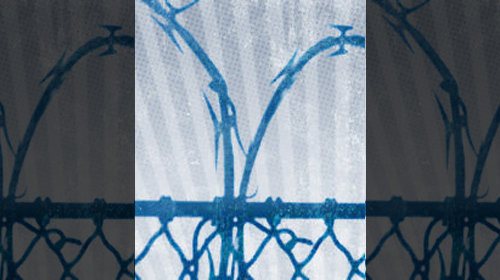Texas
OCA-Greater Houston v. Paxton
Texas has growing Hispanic and Black populations that helped propel record voter turnout in the November 2020 election. The Texas Legislature responded to this increased civic participation with an omnibus election bill titled Senate Bill 1—SB 1 for short—that targeted election practices that made voting more accessible to traditionally marginalized voters like voters of color, voters with disabilities, and voters with limited English proficiency. Since 2021, SB 1 has resulted in tens of thousands of lawful votes being rejected, and it remains a threat to democracy in Texas.
Status: Ongoing
View Case
Visit ACLU of Texas
Featured
U.S. Supreme Court
Sep 2023

Women's Rights
Racial Justice
United States v. Rahimi
Whether 18 U.S.C. § 922(g)(8), which prohibits the possession of firearms by persons subject to domestic-violence restraining orders, violates the Second Amendment on its face.
U.S. Supreme Court
Jun 2023

Reproductive Freedom
Danco Laboratories, LLC, v. Alliance for Hippocratic Medicine; U.S. FDA v. Alliance for Hippocratic Medicine
The American Civil Liberties Union joined over 200 reproductive health, rights, and justice organizations in an amicus brief to the Supreme Court in support of an emergency request to stay a decision issued by the Fifth Circuit Court of Appeals that severely restricted the use of mifepristone — a medication used in most abortions in this country — and threatened the innovation of new drugs and the ability of Americans to access lifesaving drugs.
U.S. Supreme Court
Dec 2021

Reproductive Freedom
Whole Woman's Health v. Jackson
The American Civil Liberties Union, the ACLU of Texas, and coalition partners filed a federal lawsuit on behalf of abortion providers and funds on July 13, 2021, challenging S.B. 8, a Texas law allowing private citizens to enforce a ban on abortion as early as six weeks in pregnancy—before many know they are pregnant. The ACLU’s challenge made its way to the U.S. Supreme Court three times in as many months. After hearing oral arguments in the case, the Court issued a decision on December 10, 2021, that ended the most promising pathways to blocking the ban. The Supreme Court’s decision makes it more difficult to obtain adequate relief from the courts and gives states the green light to ban abortion using bounty-hunting schemes. Texas’ abortion ban will remain in effect until relief can be secured from a court.
Texas
Jul 2021

Prisoners' Rights
Criminal Law Reform
Sanchez et al v. Dallas County Sheriff et al
Decarceration has always been an emergency, a life and death proposition, but COVID-19 makes this effort intensely urgent. The ACLU has been working with our partners to litigate for the rights of those who are incarcerated and cannot protect themselves because of the policies of the institutions in which they are jailed.
All Cases
42 Texas Cases

Texas
Apr 2011
Smart Justice
Capital Punishment
Estrada v. The State of Texas
Jurors in Estrada's 2007 sentencing trial were incorrectly told by a State's prison expert that if Estrada were given a sentence of life without parole instead of the death penalty, he could be eligible for a classification level that would allow him to leave the prison grounds after 10 years of imprisonment. Two juror notes strongly suggested that the expert's false testimony led to their decision to sentence Estrada to death. Prosecutors' use of false and misleading evidence is a leading cause of wrongful death sentences in Texas and nationwide.
Explore case
Texas
Apr 2011

Smart Justice
Capital Punishment
Estrada v. The State of Texas
Jurors in Estrada's 2007 sentencing trial were incorrectly told by a State's prison expert that if Estrada were given a sentence of life without parole instead of the death penalty, he could be eligible for a classification level that would allow him to leave the prison grounds after 10 years of imprisonment. Two juror notes strongly suggested that the expert's false testimony led to their decision to sentence Estrada to death. Prosecutors' use of false and misleading evidence is a leading cause of wrongful death sentences in Texas and nationwide.

U.S. Supreme Court
Aug 2010
National Security
+3 Issues
Sossamon v. Texas
Whether the Religious Land Use and Institutionalized Persons Act of 2000, which was designed in part to protect the religious rights of prisoners, allows prisoners to sue a state for money damages when a state violates those religious rights.
Explore case
U.S. Supreme Court
Aug 2010

National Security
+3 Issues
Sossamon v. Texas
Whether the Religious Land Use and Institutionalized Persons Act of 2000, which was designed in part to protect the religious rights of prisoners, allows prisoners to sue a state for money damages when a state violates those religious rights.
